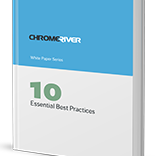 Editor’s Note: This article is the second in a four-part series on how to report travel and entertainment expenses. Part 1 can be found here.
Editor’s Note: This article is the second in a four-part series on how to report travel and entertainment expenses. Part 1 can be found here.
When John’s company sent him on a three-day business trip out of state, his flight and hotel were paid for directly. John saved his receipts for meals and miscellaneous costs and submitted an expense report totaling $195. His next paycheck included the $195 but did not withhold any taxes from the reimbursement. Since his company’s travel expense management policy is based on an IRS accountable plan, that $195 will also not show up at the end of the year as taxable income on John’s W-2.
When it comes to travel expenses, your company can often provide tax-exempt reimbursements to employees and contractors by following the IRS’ accountable-plan guidelines, according to Marianne Couch, principal of Cokala Tax Information Reporting Solutions.
However, while an accountable plan offers benefits, it also increases the risk of an IRS audit, according to Couch. In an audit, the IRS takes the following actions.
- Identifies which department handles compensation for your company’s executives and officers, examining available reports and meeting notes.
- Reviews executive salaries and benefits using employment contracts and severance agreements, and identifies all payments and loans made between your company and its executives and officers.
- Examines a sample of monthly expenses reported by executives.
- Evaluates your company’s accountable plan to determine whether it follows IRS rules.
- Searches accounts payable for payments not reported on a Form W-2 or Form 1099, using accounting codes and an executive’s name, title or Social Security number. Any payments not reported must be documented as exemptions, or they may be deemed taxable.
If you understand what an IRS audit is looking for, your company can preemptively assess areas that might present red flags. The key to conducting regular assessments is making the process easy and intuitive. With effective analytics software like Chrome River ANALYTICS, managers can track global and departmental spending, check on cost-center activity, compare individual user activity, and drill down into the details when needed — similar to the way the IRS would conduct an audit. Users can review past executive expenses and analyze current ones to compare amounts and examine specific transactions and payment codes.
An audit of your company’s expense reimbursements doesn’t have to be a stressful process, especially if you know what to expect and plan using smart travel expense management and analytics tools. For more tips, watch for the rest of our four-part series on how to report travel and entertainment expenses.
Source: IRS.gov, Institute of Finance and Management webinar
Subscribe
Latest Posts
Posts by Category
I just love the Chrome River application. I could probably sell it! Finance Administrative Coordinator Law Firm, 800 Employees
Can’t we just move year-end, so that we can roll out Chrome River sooner!? Financial Systems Director Law Firm, 300 Employees


Comments